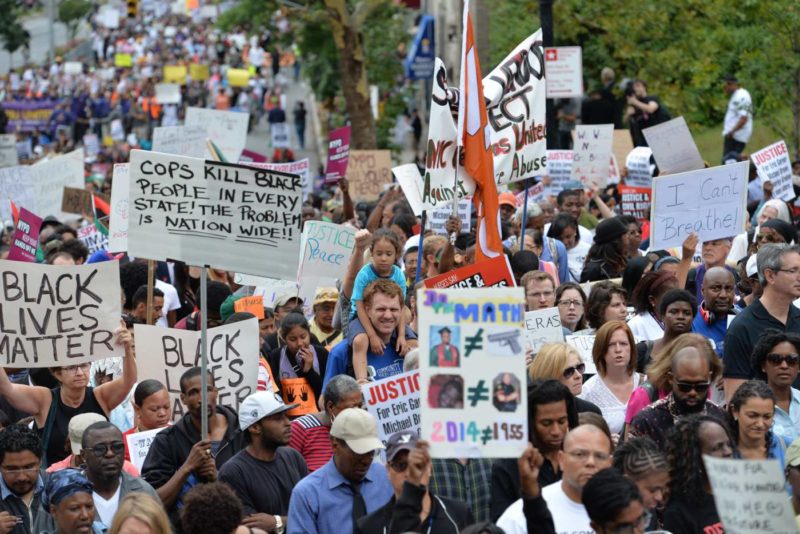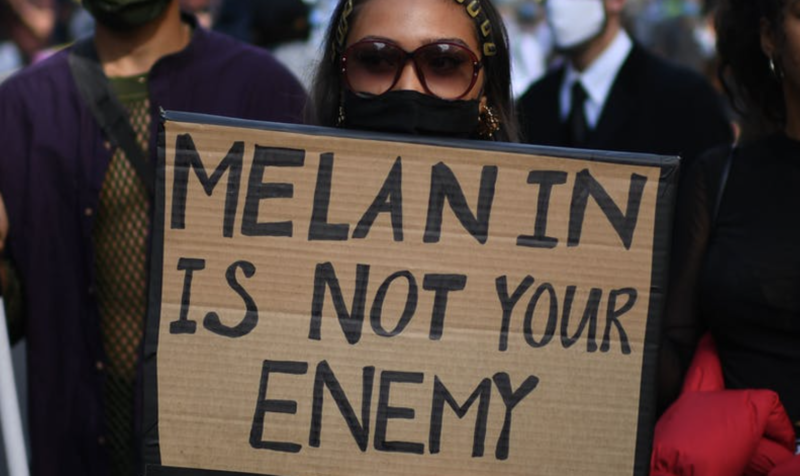Special News Series: Rising Up For Justice! – Has the skin lightener industry learned from Black Lives Matter?
Share
Explore Our Galleries
Breaking News!
Today's news and culture by Black and other reporters in the Black and mainstream media.
Ways to Support ABHM?
Introduction To This Series:
This post is one installment in an ongoing news series: a “living history” of the current national and international uprising for justice.
Today’s movement descends directly from the many earlier civil rights struggles against repeated injustices and race-based violence, including the killing of unarmed Black people. The posts in this series serve as a timeline of the uprising that began on May 26, 2020, the day after a Minneapolis police officer killed an unarmed Black man, George Floyd, by kneeling on his neck. The viral video of Floyd’s torturous suffocation brought unprecedented national awareness to the ongoing demand to truly make Black Lives Matter in this country.
The posts in this series focus on stories of the particular killings that have spurred the current uprising and on the protests taking place around the USA and across the globe. Sadly, thousands of people have lost their lives to systemic racial, gender, sexuality, judicial, and economic injustice. The few whose names are listed here represent the countless others lost before and since. Likewise, we can report but a few of the countless demonstrations for justice now taking place in our major cities, small towns, and suburbs.

To view the entire series of Rising Up for Justice! posts, insert “rising up” in the search bar above.
Has the skin lightener industry learned from Black Lives Matter?
By Lynn Thomas, The Conversation
September 21, 2020

Black Lives Matter activism has jolted the skin lightener industry. In June, manufacturers of skin lighteners joined other corporations in voicing support for the racial justice movement. Critics quickly pointed out the hypocrisy of voicing such support in the US while continuing to sell skin whitening products globally. Such products, they say, play off of and promote racism and colourism (which is prejudice based on preference for people with lighter skin tones) in Asia and Africa.
Manufacturers’ responses have varied. Johnson & Johnson agreed to stop selling Neutrogena Fine Fairness and Clean & Clear Fairness. Bigger players agreed to lesser changes. L’Oreal, the world’s largest cosmetics company, will remove references to “white”, “fair” and “light” from marketing its Garnier skin products.
This move acknowledges that such language promotes a narrow and anti-Black vision of beauty by presenting pale complexions as the ideal. Unilever, whose Ponds and Vaseline lines dominate sales in South Asia, will also alter the name of its top-selling brand: Fair & Lovely will soon become Glow & Lovely.
Are these meaningful changes? Will they put a dent in the global trade in skin lighteners, now estimated to reach US$24 billion by 2027?
Never before have activists and consumers in so many different countries simultaneously challenged major cosmetics manufacturers with such persistent criticism. Yet, my research on the layered history of skin lightening in the US, South Africa, and East Africa suggests that the companies’ actions are neither new nor sufficient. Ending the most dangerous dimensions of the trade – the promotion of racist beauty ideals and the use of products containing mercury and other toxic ingredients – will require ongoing consciousness-raising and effective government regulation.
Read the full article here.
More Breaking News here.
More about Breonna Taylor’s killing here.









Comments Are Welcome
Note: We moderate submissions in order to create a space for meaningful dialogue, a space where museum visitors – adults and youth –– can exchange informed, thoughtful, and relevant comments that add value to our exhibits.
Racial slurs, personal attacks, obscenity, profanity, and SHOUTING do not meet the above standard. Such comments are posted in the exhibit Hateful Speech. Commercial promotions, impersonations, and incoherent comments likewise fail to meet our goals, so will not be posted. Submissions longer than 120 words will be shortened.
See our full Comments Policy here.